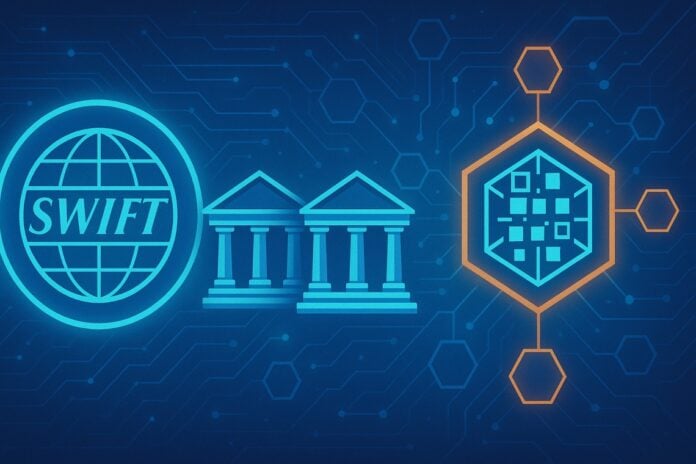The landscape of international payments is gearing up for a monumental shift. SWIFT, the financial messaging network that serves as a cornerstone of the global economic architecture, has announced a collaboration with over 30 international banks to develop a system for instant cross-border payments and a platform capable of handling new forms of digital currency.
The stated goal is ambitious: to modernize international banking transactions, making them not only faster but also cheaper and more secure. The project involves the creation of a “shared digital ledger” based on blockchain technology, considered essential for the future of financial operations among institutions worldwide.
Summary
SWIFT: A Global Infrastructure Ready for Change
The strength of SWIFT lies in its extensive reach: the network, headquartered in Belgium, connects over 11,000 banks in more than 200 countries, enabling the transfer of billions of dollars every day. However, the current system still has limitations in terms of speed and costs, with transactions that can take days to be completed.
The new initiative aims to overcome these obstacles by introducing real-time payments 24/7. This change will not only reduce waiting times but also promises to cut down operational costs, making the system more competitive compared to emerging new digital solutions.
Interoperability and New Digital Currencies
A central aspect of the project concerns interoperability. SWIFT intends to integrate its infrastructure with the systems that are emerging to manage stablecoin, tokenized bank deposits and central bank digital currencies (CBDC), such as those under development in China and at the European Central Bank.
This opening represents a direct response to the evolution of the market. Stablecoins, for example, are rapidly transitioning from niche tools in the crypto sector to true mainstream assets. According to a recent Citi report, by 2030 there could be up to 4 trillion dollars in stablecoins in circulation, with an annual trading volume that could reach 100 trillion dollars.
The Challenge of Modernization
Despite its dominant position, SWIFT is aware of the challenges posed by new technologies. Eric Trump, son of the United States President Donald Trump and a well-known supporter of cryptocurrencies, recently described SWIFT as an “outdated” system. The network’s response is clear: adopt blockchain to evolve and continue offering those compliance and resilience features that traditional banks require.
The project envisions the shared digital ledger functioning as a secure and real-time record of transactions between banks, capable of recording, sequencing, and validating each operation and applying rules through smart contracts. This approach ensures transparency, security, and automation, key elements for the trust of financial operators.
SWIFT together with a global alliance for the future of payments
The group of institutions involved in the development of the new platform includes some of the most important names in global finance: JPMorgan, HSBC, Deutsche Bank, MUFG, BNP Paribas, Santander, and OCBC, along with numerous banks from the Middle East and Africa. This alliance demonstrates the global scope of the initiative and the shared desire to lead change.
The timeline for the final launch of the system has not yet been set, but work is proceeding “at pace,” at a brisk pace, to meet the needs of a rapidly changing market.
Central Banks and the Race for Digital Currencies
The context in which the SWIFT project is set is that of a true global race towards the digitalization of currency. Today, about 90% of the world’s central banks are exploring the possibility of issuing digital versions of their currencies, to avoid falling behind the innovations of the private sector and consumer expectations.
The integration between traditional systems and new technologies will be crucial to ensure the stability and security of transactions, while maintaining the flexibility needed to adapt to constantly evolving scenarios.
Conclusions: A New Era for International Finance
The collaboration between SWIFT and the major global banks marks the beginning of a new era for international payments. The adoption of blockchain and the creation of a shared digital ledger promise to make transactions faster, more secure, and cost-effective, paving the way for integration with new forms of digital currency.
In a world where technology advances at a dizzying pace and the demand for efficiency grows, the ability to innovate will be crucial to maintaining leadership in the global financial sector. SWIFT’s initiative represents a decisive step in this direction, aiming to offer a cutting-edge system capable of meeting the challenges of the future.


